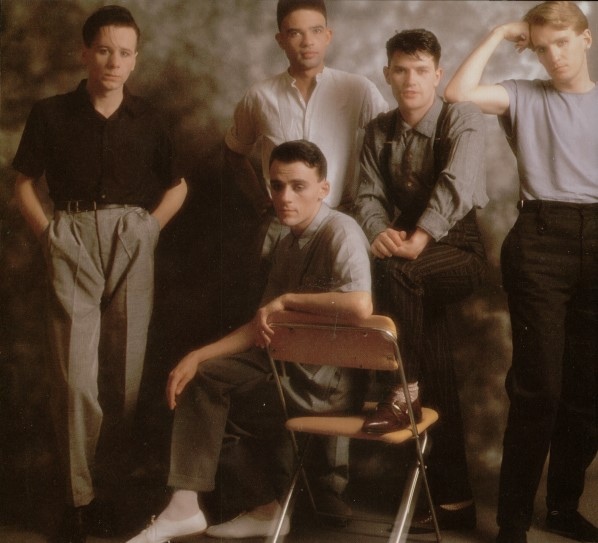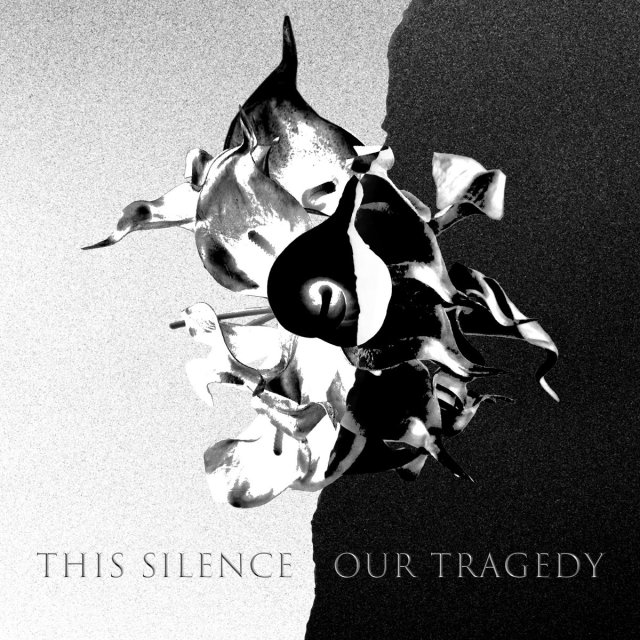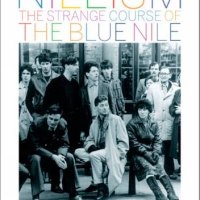[continued from previous post]
When the band reconvened after finally brushing with success [and actually achieving it in the former colonies of Canada and Australia] their trajectory was assured with their most appealing, yet radical album yet. “New Gold Dream [81, 82, 83, 84]” sounded like none of its peers, and perhaps that’s the reason why it does not sound locked down or dated today. Scott Walker was so taken with the production that he obtained the use of producer Peter Walsh to carry all of his albums from 1983 right through to today. U2 were so taken with the scope and vibe of the album that they obtained the use of Brian Eno and Daniel Lanois to the end of sounding like this album. I can’t believe that Green Gartside didn’t write “Cupid + Psyche ’85” after hearing the likes of their breakthrough single, “Promised You A Miracle.” The shimmering, complex melodies favored there were clearly from the same side of the street and he even took the New Gold Dream countdown one year further, as if to make a statement.
There was still a Krautrock foundation to the album but it had been pulled like taffy to encompass enormous warmth and dynamism, with funk still lurking in the rhythmic foundations of the tunes, which still sounded like the product of jamming together. Even when there is a single backward glance to something colder from their past [“King Is White + In The Crowd’] the result is a paradoxical lush coolness. The album was one to enflame the senses after a developmental arc of arid intellectual precision mated with dominant body rhythms. The rhythms were still here; more sensual than ever, but the massive emotional thaw could wash over the listener like a tidal wave.
Stadium Minds
Not surprisingly, this latest work granted the band success in their homeland at last. Even less surprisingly, they reacted to it by moving in an extroverted direction. One informed by their incessant touring and the gradual enlargement of their audiences, particularly in European Festivals. When “Sparkle In The Rain” debuted it was a whole different ball game. The band stepped back from the dance floor and aimed their music at the arenas of the world with direct statements such as “Waterfront,” which even the deaf could groove to with that pounding, brutally simple bass line filling a stadium. Yet Jim Kerr was still favoring the oblique turn of a phrase. This, and their unbridled belief in what they were committing to, saw the work through to this level of notoriety with their integrity intact.
Better still, by 1983-1984, the band were at their formidable acme. The loss of original drummer Brian McGee, was the only change in the band at this time and the remaining four members were at the peak of their game. New drummer Mel Gaynor debuted here and fit the band’s more direct emphasis like a glove. Meanwhile, the live recordings from this time document a band who could expand their repertoire to epic length with a seemingly effortless wealth of new ideas and detail. Not every band could diverge [often drastically] from their original arrangements with song lengths firmly in the ten minute zone and get an enthusiastic “yes!” out of me for doing it. My only regret is that I never got to see them do this. I would still be raving today if given half a chance.
But when the bite was taken from that apple, the fall from Paradise was all but assured. The “Sparkle” era was just the transitional phase to something far more banal. “Sparkle In The Rain” was followed by the exercise in compromise that saw the band topping the US charts with a song they didn’t write, and [to their credit] weren’t keen to do in the first place. This success had a catastrophic effect on the band. Their cohesion as a band, which had surmounted the loss of original drummer Brian McGee in spite of the importance of his drumming style to every step the band took for their development, was now formally ruptured with the firing of bassist Derek Forbes. With their original rhythm section gone [just imagine their first seven albums without them… we would not be having a 70+ thread post on this band] the rot set in. And quickly at that.
Next: …[Even more] Conclusion







![Chris Cross: 1952-2024 [part 2]](https://postpunkmonk.files.wordpress.com/2024/04/ultravox-cross.jpg?w=200&h=200&crop=1)




From incredible, to credible, to regrettable. Sustaining the upward arch’s peak was never going to be easy and was possibly impossible, but the decisions made after Sparkle In The Rain were incredibly ill made and seemed to not reference the vision that brought the band to 1984. Yes, the grind of touring and just being a band must have had some negative effects on a band that had put their all into getting to where they were, but the decisions made only further fractured the cohesion of Simple Minds and merit of their output.
What Kerr and Burchill should be credited with is never really giving up. Sure you can say that by the end of the 90’s they had, but it wasn’t who they were to give in to the defeat stardom had dealt them – that they had dealt themselves and they took the long road back to the point that Simple Minds is certainly making credible music again and flirting with the incredible.
LikeLike
Echorich – You hit the nail on the head. Their determination even in the face of strong odds is why we are having this conversation. They have stuck around long enough to come out on the far end of the Inverse Bell Curve of Artistic Quality. That they went into their 50s on the upswing is probably a function of their timing. The longer you wait, the harder it is to fight entropy. Just ask Ultravox!
LikeLike
I’d rather not ask Ultravox anything these days, just listen to John Foxx + The Maths. But here is where I find something radically different in the aging of “our music heroes” as compared to the generation/era before – “The Dinosaurs” bands of the Post Punk era have basicallly traded exclusively on their past, not really interested in making new music and certainly no new music that comes anywhere near what gained them their fame. Sure The Stones find a way to release something every decade that they think people will buy/listen to, but it’s all manufactured to be an excuse for another tour where good seats cost four figures BEFORE the resale market even begins.
You may not like what Echo And The Bunnymen have put out over the last decade and a half, but they have been committed to putting that music out and stand behind it with a confidence of their earlier glories. OMD may only have two albums under their belt over the past 5 years, but they are rooted in their Imperial Past and are far from throw away. The Post Punk Era is now into its third decade and artists who were white hot 30 years ago are active and driven today – that’s really remarkable and for me very pleasing.
I don’t see Simple Minds calling it a day right now. There’s a fire burning and new music that needs forging.
LikeLike
Echorich – So true about The Rolling Stones! But OMD’s two albums in four years looks like desperate speed next to Simple Minds’ stately progress. I wouldn’t mind them stepping up the pace a bit.
LikeLike
Stately works as a descriptor for SM right now.
LikeLike